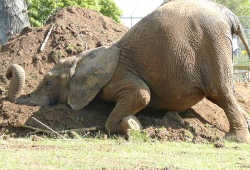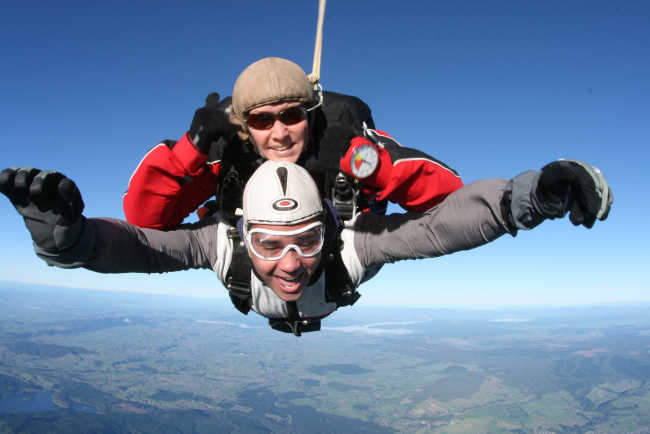Dorothy – 17/12/99
What influences impact powerfully on young people growing up? For Zoe and Alan they were the family, the codes of home discipline, the Church, the school…..
Zoe Hepburn (born 1907) looks back. Zoe feels that she had a fortunate upbringing as she had clear guidelines given her about behaviour, but also a fair degree of independence and training in decision making.
Clothes
|
|
| Zoe at eighteen with a short haircut and perm Photo source Zoe Hepburn |
One way we learnt decision making was through the visits of the dressmaker who came to the house and made our clothes. We were given one of Mrs Weigel’s pattern books and allowed to choose what we wanted. Once the choice was made we could not go back on it, and this trained us in careful decision making. I remember choosing a crinoline hat made of soft straw with shirred chiffon underneath the brim. Like most girls I had long hair. I wore mine in a plait with a ribbon at the top and the bottom. I had it cut at eighteen and had my first perm.
School uniform At Cashmere Primary School we had no uniform, but for secondary school we had no choice about our clothes and had to wear a navy pleated skirt and jumper, a blazer with a monogram on the pocket and a felt hat in winter. In summer we wore a navy cotton dress and straw boater. We wore gloves on the street in summer and winter. We were taught that no lady goes out without her hat and gloves and no lady crosses the gutter. For years I was always looking for a bridge across the gutter. My mother could not bear the word ‘gutter’ and called it ‘the ditch’. Perhaps it was because of the word ‘guttersnipe’.
Streets Many of the streets were not sealed and with lots of horses and carts there was a lot of horse manure on them, and when a nor’wester blew it was most unpleasant with the dust and the manure smell. A man was employed to pull a handcart and shovel up the manure, though some was collected by garden-conscious ladies.
Sewage We moved to Riccarton and for some years we had a toilet in the garden and the nightman called on Friday nights to take away the can. We always seemed to have visitors and rushed to shut the windows to keep out the smell.
Telephones We had a telephone on the wall and to make a call we had to wind the handle and give the operator the number we wanted to call. We were plugged in manually at the exchange.
Toys Favourite toys in my childhood were dolls and a dolls’ pram. One called Rona had a rag body and celluloid head. Other dolls, Lily and Jane, made in Germany, had jointed arms and legs, eyelashes, eyes that opened and shut and real hair. Such dolls were beautiful but breakable. The dressmaker who came to make our clothes would make winter and summer outfits for the dolls as well. I remember a red coat with a white satin collar, and a Red Riding Hood cloak.
I also had a stuffed toy called Punch, from the Punch and Judy story. Once when it snowed – a rather rare excitement in Christchurch – I was told not to go out in the snow, so I threw Punch out the window on to the lawn. Then I had to go out to get him. When I brought him in I slapped him for being naughty and going out into the snow.
The influenza epidemic I remember having the flu and seeing the van going past at night to pick up those who had died that day.
Meals My mother cooked all our meals. I remember having porridge for breakfast and burying sugar in the middle of it. Rabbit pie was one of my mother’s specials.
Sundays On Sundays I went to Sunday School in the afternoon. On one occasion after I had broken a cup and fibbed to my parents about it, we had the Sunday School anniversary and a visiting preacher who pointed, it seemed, directly at my black heart and said, “What about that cup that was broken this week?” I tore home because I thought I was either going to be eaten by bears or struck by lightning (even though it was a fine afternoon with no sign of lightning or of bears). I flung myself into the house and confessed to my parents who laughed and said that they knew all the time that I had done it.
Swimming and holidays I liked swimming and went with the school to the Tepid Baths (the Teps, as we called it). For the holidays we went to our holiday house at Stewarts Gully and went swimming in the Waimakariri River. My father used to go shooting and fishing and we had lots of rabbit, salmon and trout to eat.
Entertainment I learnt to play the piano. For entertainment at home we sang around the piano or from 1925 we listened to our wireless – the cat’s whiskers kind of early radio. On Sunday nights my mother used to read us a Bible story and only after that would she agree to my father inventing a serial story aided by the family. We brought in tigers, elephants, bears and all sorts of disasters!!
Housekeeping My mother did not keep very good health, so we had a charwoman who came in to do the cleaning. We had our own jobs to do. I had to make my bed, help with dishes and clean the knives with pink emery powder – quite an arduous job in the days before stainless steel knives.
Outings We always carried half a crown when we went out “in case of a crisis” – not to be spent otherwise. In the tram there was a notice with an eye and the words, “The Lord seeth all”.
Excursions without adult supervision My sister and I were allowed to roam the hills and walk to Governors Bay – outings that children now would not be allowed to have on their own. There was no talk of “Stranger Danger”.
Trams, bicycles and a car We went to school on the tram and later we had bicycles. We would bike across the town in summer to play tennis with Margaret MacGibbon at her place where there was a grass court. I remember one hot morning the tar on the road melted and I got the wheel of my bicycle caught in the tramlines, and was smothered in melted tar.
In the mid 1920s we had a car – a Morris Oxford with a brass front that had to be polished. We always had to carry a can of petrol on the running board as there were few petrol stations.
Overview Looking back I remember an interesting childhood and a good mix of security and freedom.
Alan (born 1913) looks back. I grew up in a suburb of Wellington.
Respect for authority Looking back I feel that I had a very good childhood. I was very well cared for. I had a very strong respect for authority. It was something I accepted and I never thought of questioning it. As a child I would never have dared to contradict my parents. I held my grandparents in such respect that I would seldom speak to them.
Church attendance It was taken for granted that children would accompany their parents to church and sit quietly through a sermon lasting forty to fifty minutes. Nothing was provided for the entertainment of the children. They were expected to be seen and not heard.
A set of best clothes was kept for wearing to church or when very important visitors were coming.
The family car My father had a Model T Ford of which he was immensely proud. He would clean it to within an inch of its life every Saturday so that if it was wet on Sunday we walked to church. If it was fine we could drive.
My mother a home maker My mother was a home maker. She never assumed that she would not be at home.
We always had a hot roast dinner at midday on Sundays. Otherwise we had modest meals – porridge and toast for breakfast, and plain home-cooked dinners. Most of the vegetables were grown in the garden.
My parents kept fowls in the back garden so we had fresh eggs. When my mother called the fowls to feed them she always called, “Dal, dal, dal,” as a sound to which they responded. That became the first sound I made, and my mother called me “Dally”, all her life.
I don’t remember as a young person, even into my teens, ever going out for a meal until I left home and went to university. My mother cooked everything and baked our cakes. Her special was a one pound fruit cake. She made me a cut lunch every day from the time I started school.
Entertainment It was a world much less stimulating for children than it is now, with no television, no radio, and a trip to the movies a once-a-year excitement. They were silent films. As a result we were more dependent than modern children on two things – amusing ourselves and being read to. This was a very important part of the personal relationships.
Listening to music was not a major interest in our house, but we learnt to play the piano. From the age of five I was called at six in the morning to do piano practice, increasing to an hour every morning.
My father was a very keen card player and we played first “Five Hundred” and graduated to bridge. My mother found it hard to get away from the thought that cards were a thing of the devil, so we never played on Sundays.
My parents had a lot of visits from their friends during the day or evening, but also had a lot of people staying in the house, especially itinerant missionaries. The only people we called aunt and uncle were blood relations. We did not have courtesy aunts and uncles.
Household chores and money My parents believed in a growing routine of jobs to be done – drying dishes when my sister washed them, and picking up the leaves off the lawn on Saturdays. Although I sometimes resented this it made me part of the place. There was no pocket money until I went to high school. Money was not talked about in front of the family. Children were taught nothing about how the world works in terms of money.
Schooldays I was lucky that at primary school there were only about twenty pupils in the classes, and at secondary school about thirty. I remember struggling to keep up at school and feeling inhibited about sport because I wore glasses. Caning was used for discipline at school, but our parents never used this type of discipline. A highlight of my schooldays was a trip up to Mt Ruapehu.
Travel Before my sister and I went to study in Edinburgh my father took us on a business trip with him around the North Island, staying in good hotels, so that we would know how to behave in respectable society. This seemed to us a very long journey. I contrast it with the trip our children took at the same stage – flying round the world.
Apart from that trip I remember a number of trips from Wellington to stay with my relatives in Nelson – a nightmarish overnight trip in the Nikau because whichever way the wind blew you were against it half the night.
What a contrast between my life and the experiences of my children and grandchildren!





